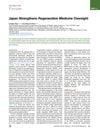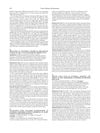Autologous Stem Cell-Based Interventions in Australia: Exploring Patient Experience in Light of Regulatory Exceptionalism
May 2019
in “
Cytotherapy
”

TLDR Patients in Australia underwent costly, unproven stem cell treatments due to weak regulations and aggressive marketing.
The document discusses the prevalence of privately owned clinics in Australia offering autologous stem cell-based interventions for various conditions, including osteoarthritis, facial rejuvenation, hair restoration, and neurological diseases. These interventions, which are not part of clinical research and lack evidence of efficacy, have been aggressively marketed to patients due to a regulatory exemption that excluded autologous cells and tissues from oversight by the Australian Therapeutic Goods Administration (TGA). This resulted in patients paying significant amounts (AUD$6,000 or more) for unproven treatments. The study, which included two workshops with 22 participants and 15 interviews conducted in 2016 and 2017, found that patients' decisions to undergo these interventions were influenced by their illness experience, disillusionment with current medical practice, unrealistic expectations, lack of information from providers, and trust in the healthcare system. The study concludes that while recent regulatory changes may offer better patient protection, the previous lax regulatory approach allowed for practices with questionable evidence and exploitation of patient vulnerability. The document also mentions that from July 1, 2018, the TGA banned direct-to-consumer marketing of advertised stem cell products, but services could still be advertised without mentioning specific products. Data from 51 clinic websites showed changes in marketing practices following the ban, highlighting the reform's improvements and limitations in addressing consumer safety and protection from misleading advertising of experimental stem cell interventions.





